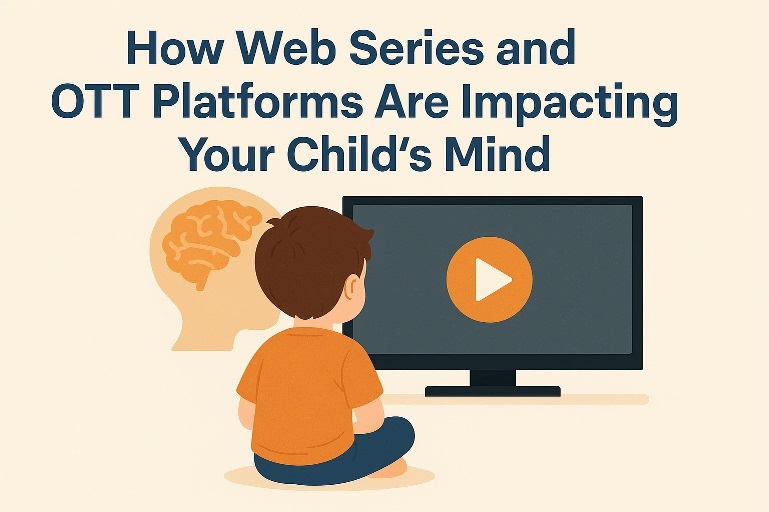In recent years, web series and OTT platforms have become a staple in children’s entertainment, especially with the rise in mobile access and streaming services. While some content can be enriching, excessive or inappropriate viewing can affect young minds in several ways. Here’s what parents need to know.
1. How much time are children spending?
A large nationwide survey of urban Indian parents revealed that nearly half say children aged 9–17 spend three or more hours daily on social media, OTT, or online gaming. Additionally, 66 percent of parents believe that their children have developed an addiction to these platforms, noting emotional shifts such as increased aggression, impatience, lethargy, and even signs of depression.
2. Brain and cognitive development
For younger children, especially toddlers, excessive screen exposure can delay language development and reduce school readiness. One Korean study found that toddlers watching around three hours of TV daily were three times more likely to experience language delays. In older children, extensive screen time—particularly above seven hours per day—has been linked to structural changes in the brain’s cerebral cortex.
3. Effects on attention and executive function
Fast-paced visual content common on streaming platforms can impair children’s ability to focus and regulate themselves. Even just nine minutes of such content reduced executive function in preschoolers—skills like self-control, problem solving, and delayed gratification.
4. Academic performance and intelligence
Broad research shows a complex picture: while excessive TV watching and passive video consumption are associated with lower cognitive performance, moderate engagement with interactive content like video games may actually yield slight benefits to intelligence and school performance.
5. Emotional and cultural impact
Repeated exposure to intense or mature themes—violence, edgy content, or adult situations—can erode emotional resilience. Viewers may develop heightened anxiety or skewed perceptions of reality. This “mean world” phenomenon, known in media studies, shows that heavy exposure to such content can increase fear and pessimism. For Indian children, content that clashes with cultural or family values may create confusion or tension.
6. Some media content can help
Not all OTT content is harmful. Shows with clear narratives, educational themes, and slower pacing can enhance vocabulary, social understanding, and emotional growth. The effect of media on a child depends greatly on what they watch—not just how much.
Practical Tips for Parents
Monitor screen time: Follow age-based guidelines—especially limiting heavy consumption for toddlers and preteens.
Choose wisely: Prefer content that encourages thinking, language, and emotional development.
Co-view and discuss: Watch shows with your child and talk about what they’re seeing.
Balance activities: Encourage outdoor play, reading, and creative hobbies.
Watch for behavior changes: Aggression, impatience, or lethargy can signal unhealthy habits. Reduce or replace screen time if noticed.
OTT platforms and web series are not inherently harmful—but their impact depends on how and how much children use them. With mindful content choices, attention to behavior, and a healthy balance of activities, parents can help ensure their child’s screen time supports their growth rather than harming it.
By Nidhi Mehta – Founder – IndiaTutor.in

